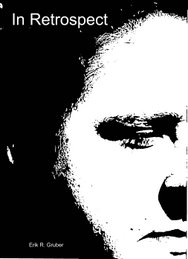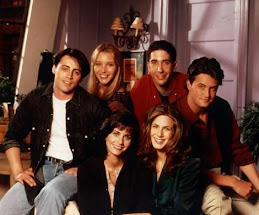A few weeks ago I proposed a conversation about Ecclesiastes. It never really took off, but the topic has never been far from my mind. Now I’d like to re-propose. Read the book, and I assure you that you will be confused beyond repair. Let’s join together to vent about this frustrating, vague and contradictory book.
It’s hard to pinpoint what it is about Ecclesiastes that I find so irritating. Perhaps it’s the repeated use of the phrase “under the sun” (I realize it was a stylistic choice of the author, and much is likely lost in translation, but in English it sounds like a highly contrived and trite literary device). Really, the style of the book as a whole is a little mind numbing. At times it seems that the same phrase is being repeated on a loop. Yadda yadda yadda is folly…blah blah is chasing after the wind.
More likely, my annoyance lies in the fact that for the past 2 weeks my obsessive compulsive personality has been entrenched in the dualism and internal illogicality that Ecclesiastes has to offer. Seeking pleasure is meaningless (2:1-11), wisdom (1:18) and folly are both meaningless (2:12-16), toil is meaningless (2:17-19), advancement is meaningless (4:13-16), and riches are meaningless (5:10).
But then we get to chapter 3 (and even the end of chapter 2): “A man can do nothing better than to eat and drink and find satisfaction in his work. This too, I see, is from the hand of God” (2:24, this point is stated again in 3:22). A man can do nothing better than to find satisfaction in his work? I thought we already covered the fact that toil and pleasure are meaningless. 7:11 says “Wisdom, like an inheritance, is a good thing and benefits those who see the sun,” but wisdom is meaningless. Riches are meaningless, but 10:19 says: “A feast is made for laughter, and wine makes life merry, but money is the answer for everything.”
So what’s the point of this book? Or to ask the philosophical question: if this book holds any truth, what’s the point of life? If anything we can possibly work towards in the physical world is “chasing after the wind,” if any pursuit or gain is meaningless, what are we to do? If striving for wisdom leads only to grief, if our work is destined to be forgotten and the fruits of our labor fated to rot away, does purpose really exist?
On the surface Ecclesiastes seems to offer an answer: “A man can do nothing better than to eat and drink and find satisfaction in his work.” But for whom is this enough? If we see and understand that we are merely pawns, destined to return to the dust from which we came, what is our daily motivation? If we can’t accomplish anything that hasn’t already been done, why even try?
Maybe it’s so damned frustrating because it’s so true.
Thoughts?
Thanks for reading.
On a side note: Peter Jackson and New Line have ended their dispute over proceeds from LOTR, and he has agreed to become actively involved in the production of The Hobbit. http://www.nytimes.com/2007/12/19/movies/19jack.html?th&emc=th
The good news: PJ will executive produce, meaning he will have approval rights on all creative elements.
The bad news: he won’t be writing the script or directing the film.
And, if you read the NY Times article, what’s this about a sequel to The Hobbit (supposedly spanning the 60 years after the Hobbit and before LOTR)? When they inevitably screw this up, I hope Tolkien rises from the grave to seek bloody revenge.
Wednesday, December 19, 2007
Subscribe to:
Post Comments (Atom)


















3 comments:
I have to admit I have never read ecclesiastes through or been involved in a study of it. I only read the occastional verse when I find it here or there. Anyway, I will have to read and give my expert opinions.
On to the Hobbit...
I think it is great PJ will be involved in making the movie. However, I am not disappointed that he is not writing or directing. I was dissapointed in many of the creative liberties that PJ decided to take in making LOTR movies. Examples include:
1) The portrayed time between Bilbo leaving his ring to Frodo and Gandalf returning and sending Frodo on his journey (Multiple years shrunk into seemingly a week or so of time). I'll admit it would have been hard and could have disrupted the flow of the movie or added unneeded length, but still... be a little more creative.
2)The absense of Tom Bombadil.
3)The portrayal of Faramir. Almost the complete oposite of what his character was really like (at least as he is portrayed in Two Towers).
4) The rescuing of Helm's deep by the Elves.
5) The absense of the Rangers accomanying Aragorn in the second and third movies.
6) Gandalf's face off with the witch king.
7) The major focus on Aragorn and Arwen when Arwen isn't even mentioned in the books. Which in turn led to PJ using Arwen to find Aragorn and the Hobbits on the way to Rivendell to introduce her as a character.
Just a few examples anyway.
My point being I hope they do a better job sticking to the book when they make the hobbit.
Also, I'm not as concerned as you about a Hobbit sequel for a couple reasons. First off there is quite a bit of happenings that Tolkien mentions in the appendix during those 60 years. I think that some of these stories would help with all that happened to build up Middle Earth to the point it was at at the start of LOTR. I think the movie could have a good focus on the wizards (plural) as well as what men and elves were doing (especially Gondor) with the knowledge that Sauron was back.
I do think it might be difficult to come up with an independent story contained within itself as to hold its own as a full length feature film. That might be one major area it would struggle. Also it could set us all up for major disappointment if major creative liberties were taken and if the movie was largely made up rather than based on Tolkien's writings. Anyway, those are my initial thoughts.
Thanks for the post Gruber, you made my lunch enjoyable today!
It’s good to see that you are writing again.
I want to start by saying two things: 1) I feel that Ecclesiastes is a hard book to understand unless you look into the Hebrew text and how Solomon uses certain phrases to explain his meaning. 2) I am super excited about the upcoming Hobbit and can’t wait to see the sweet-ass dragon at the end.
Regarding Ecclesiastes, I can see how it appears to be a complete contradiction when first read, but the more you look into it, the more I feel it makes sense. For example, Chapter 2 is devoted to the idea that everything is meaningless, yet the last few verses seem to contradict what was said the entire chapter. I believe there is a good explanation for this.
Look at the phrase, “under the sun,” which is seen 28 times throughout the book. From the very beginning, Solomon uses this phrase to distinguish between earthly things and Godly things, or things “above the sun.”
In 2:17-23 he talks about the futile efforts of building wisdom and wealth as personal edification. The wiser he becomes the more he realizes how unfulfilled he is. In the quest to demonstrate his wisdom, Solomon comes to the conclusion that all his effort “under the sun” is meaningless as it lacks fulfillment and is left to be inherited by fools (v.19).
V. 24-26 shows that the search for wisdom and the accumulation of wealth, etc will not bring us happiness to the soul but can only be used to serve the body. When we acknowledge that these are gifts from God and only God can satisfy our heart’s desire, we have no reason to hate the labor or feel despair over it.
As hard as Solomon tried he could not obtain fulfillment by his own wisdom and needed the special grace of God. He therefore directs us to expect it from the hand of God and ask for it in prayer.
Anyway, that is my take on it. I have read this book a few times now and it seems to help me a lot when I look at a commentary that is based on the original language. If my explanation doesn’t seem to make much sense I apologize as it is very late for me to be up as I have to be at the office at 7am.
Thanks for the pic Grub daddy and it's good to have you back!
C ya soon buddy!!!
Post a Comment